Contents
2. Important Event: The Protestant Reformation
4. History with Tenses and Conditionals
7. Answer Keys
1. Word of the Week
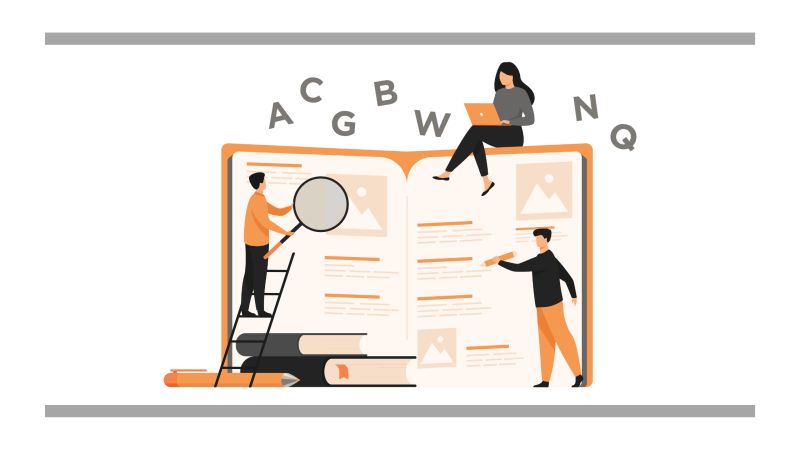
indifference (n.): lack of interest, concern, or emotion toward something; it’s the state of being neither supportive nor opposed, often showing no care or enthusiasm
Example sentences:
1. The government’s indifference to the environmental crisis has sparked widespread protests.
2. She met the news of her friend’s success with cold indifference, which surprised everyone.
3. His indifference to the rules eventually got him into serious trouble at work.
2. Important Event: The Protestant Reformation
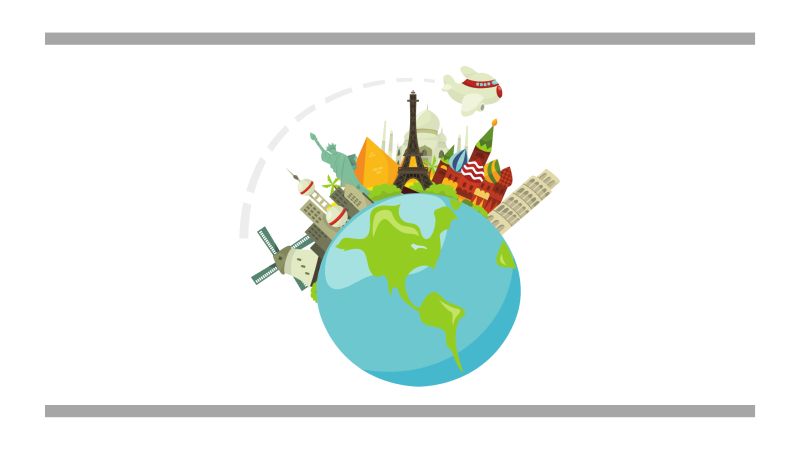
Video
Summary
The Protestant Reformation, a 16th-century religious and cultural movement in Europe, was triggered by concerns about corruption and theological issues within the Catholic Church. Martin Luther, a key figure, challenged the Church’s authority, translated the Bible into German, and advocated for direct connections between individuals and God. The movement led to the creation of new Protestant denominations, political and social changes, and educational advancements. It also contributed to the scientific revolution and the Enlightenment.
Facts
- German monk Martin Luther played a crucial role in the Reformation.
- Luther challenged the Pope and the Catholic Church’s authority.
- Luther translated the Bible into German, making it accessible to the public.
- The Reformation emphasized a direct relationship with God without the need for priests or the church.
- Led to the formation of new Protestant denominations: Lutherans, Calvinists, Anglicans.
- The Protestant Reformation resulted in a division between Catholics and Protestants.
- Reformation triggered political and social changes.
- Contributed to advancements in education and the spread of ideas.
- Laid the foundation for the scientific revolution and the Enlightenment.
- Protestant denominations continue to play a significant role in the religious landscape.
Vocabulary Exercise
Read the definitions of words and phrases. Then complete each sentence with one of the bold words or phrases.
- key figures: prominent individuals who play a crucial role in a particular field or historical event
- (to) challenge the authority (of): to question or confront the power or legitimacy of someone or something
- general public: the ordinary people in a society, not belonging to a particular group or profession
- (to) advocate for the idea (that): to support or argue in favor of a particular idea or possibility
- far-reaching consequences (for): the impact or outcomes of something that extend widely or deeply
- (to) lay the foundation (for): to establish the groundwork or basis for the development of something
- pivotal moment: a crucial and decisive moment that has a significant impact on a particular situation or development
- The signing of the treaty was a __________ in diplomatic relations between the two nations.
- __________ in the scientific community often contribute groundbreaking discoveries.
- The __________ often expresses its opinions through voting in democratic societies.
- Investing in education helps to __________ for a skilled workforce.
- She __________ that renewable energy could replace traditional sources.
- The protesters aimed to __________ of the oppressive regime.
- The decision to cut funding for education has __________ for future generations.
Are you enjoying this lesson? Support us to keep it free for everyone – click on the “Donate” button …
… or go to this page:
3. This Week in History
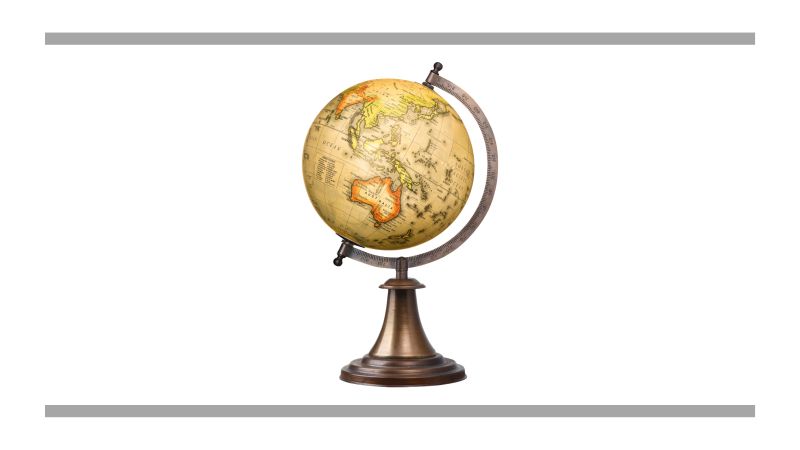
World War I Begins (1914): On July 28, 1914, Austria-Hungary declared war on Serbia, triggering the start of World War I. This global conflict reshaped alliances and led to significant geopolitical changes.
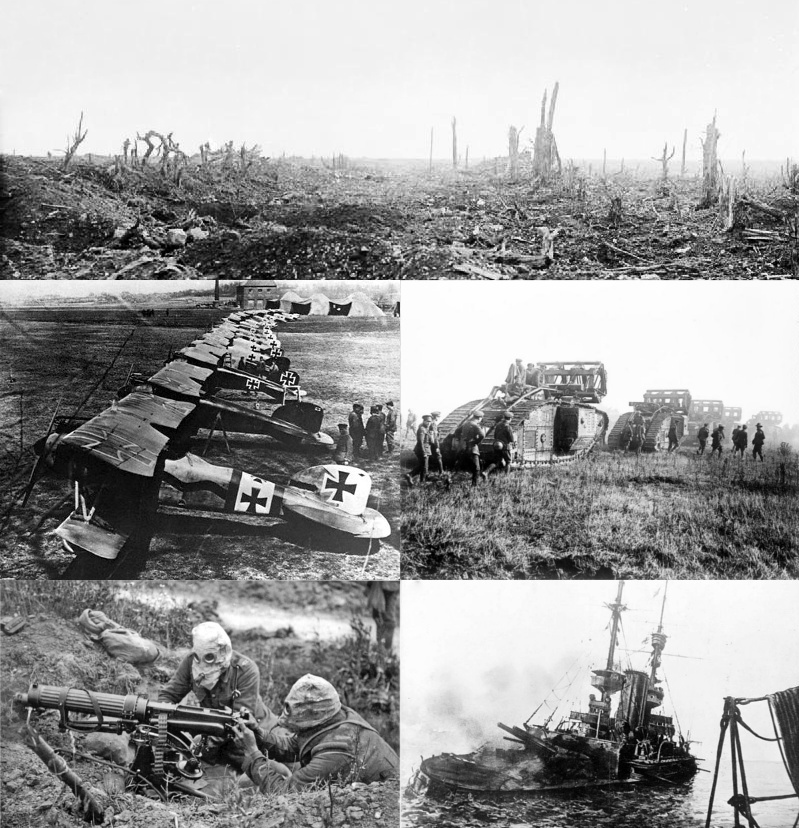
World War I montage
Vocabulary exercise
Read the definitions of words and phrases. Then complete each sentence with one of the bold words or phrases.
a. Austria-Hungary (place): a large empire in central Europe that existed from 1867 to 1918
b. (to) declare war (phr.): to officially start a war against another country
c. World War I (event): a global war that took place mainly in Europe from 1914 to 1918
d. alliance (n.): an agreement between countries to help each other, especially in war
e. geopolitical (adj.): related to politics and geography, especially between countries
1. Germany ____________ war on Russia in 1914.
2. The war changed the ____________ map of Europe.
3. The two countries formed a military ____________.
4. _______________ collapsed at the end of World War I.
5. Millions of soldiers died in ______________.
(See answer key at the end of this lesson)
International Tiger Day Established (2010): On July 29, 2010, International Tiger Day was established to raise awareness about tiger conservation, highlighting endangered species and environmental protection.
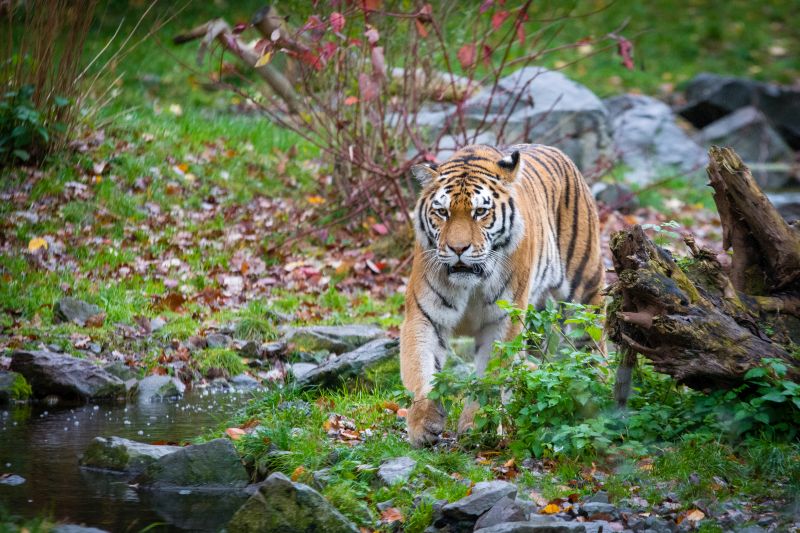
Siberian tiger
Vocabulary exercise
Read the definitions of words and phrases. Then complete each sentence with one of the bold words or phrases.
a. (to) raise awareness (phr.): to help people know more about a problem or issue
b. conservation (n.): the protection of nature and natural resources
c. endangered species (n.): animals or plants that are at risk of disappearing forever
d. environmental protection (n.): actions to keep the natural world safe from harm
1. The giant panda is an _________________.
2. The campaign _______________ about ocean pollution.
3. Laws were passed to improve ___________________.
4. ____________ efforts helped save the forest.
(See answer key at the end of this lesson)
First FIFA World Cup Concludes (1930): On July 30, 1930, the inaugural FIFA World Cup concluded in Uruguay, with the host nation winning. This event marked the start of a global sports tradition.
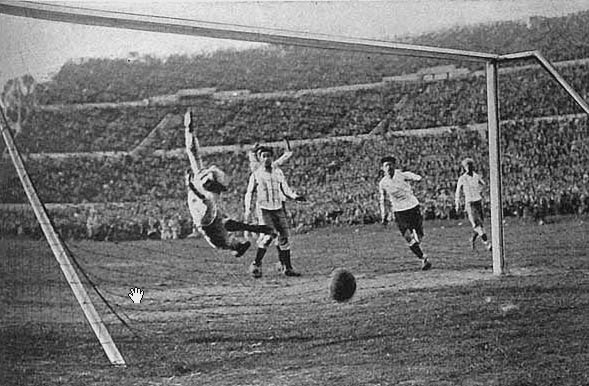
The 4th goal of Uruguay v. Argentina national team scored by Héctor Castro
Vocabulary exercise
Read the definitions of words and phrases. Then complete each sentence with one of the bold words or phrases.
a. inaugural (adj.): happening for the first time
b. (to) conclude (v.): to end or finish something
c. host nation (n.): the country where an international event is held
d. sports tradition (n.): a long-standing practice or custom related to sports
1. The event ____________ with a fireworks show.
2. The opening ceremony is a _______________ in the Olympics.
3. France was the ____________ of the tournament.
4. The ____________ Olympic Games were held in 1896.
(See answer key at the end of this lesson)
Battle of Passchendaele Begins (1917): On July 31, 1917, the Battle of Passchendaele began during World War I in Belgium, known for its brutal conditions and heavy casualties, symbolizing the horrors of trench warfare.
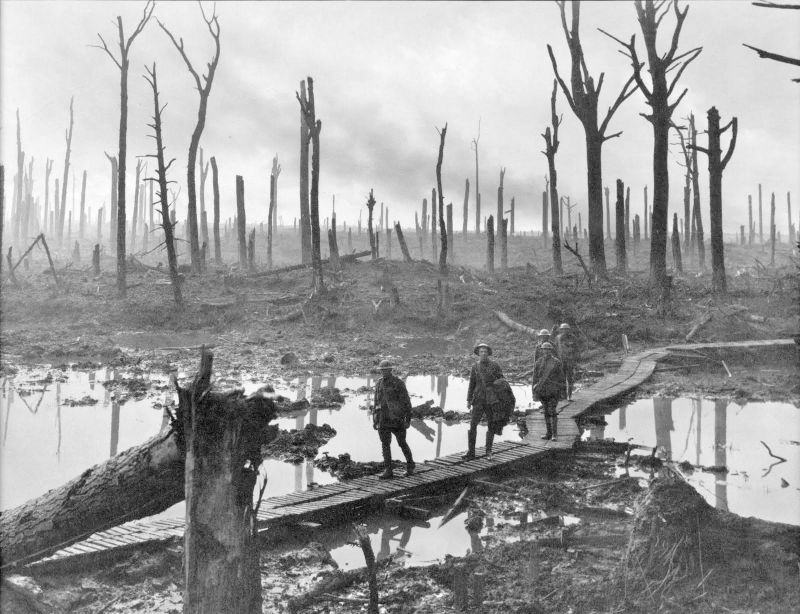
Chateau Wood, Ypres, 1917
Vocabulary exercise
Read the definitions of words and phrases. Then complete each sentence with one of the bold words or phrases.
a. brutal conditions (adj.+n.): very hard and cruel situations
b. heavy casualties (adj.+n.): a large number of people killed or injured
c. horror (n.): a strong feeling of fear or shock
d. trench warfare (n.): a type of fighting in deep ditches used in World War I
1. The army suffered _________________ during the battle.
2. Soldiers faced _________________ in the trenches.
3. _________________ caused many soldiers to die slowly.
4. The ____________ of war stayed with him for life.
(See answer key at the end of this lesson)
MTV Launches (1981): On August 1, 1981, MTV (Music Television) launched in the United States, transforming music, pop culture, and media with its innovative music video format.
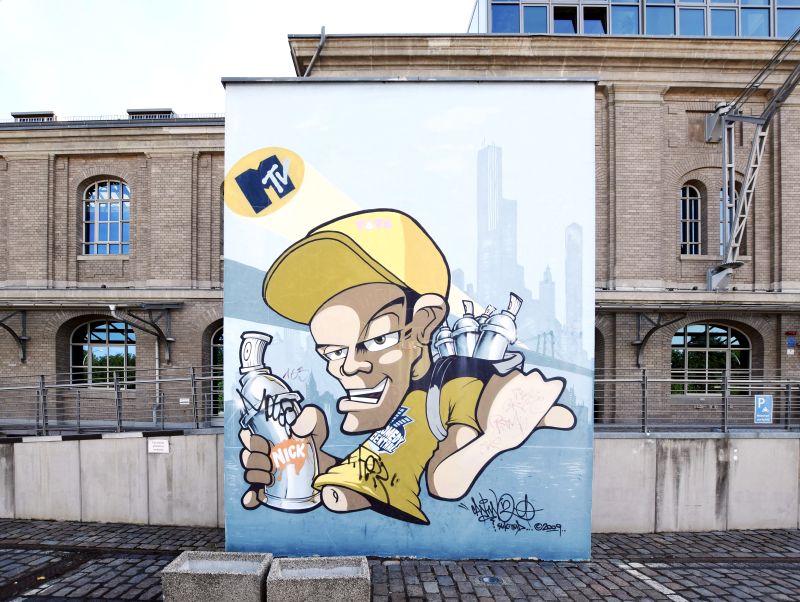
Mural at the MTV Networks Germany building in Berlin, Germany
Vocabulary exercise
Read the definitions of words and phrases. Then complete each sentence with one of the bold words or phrases.
a. (to) launch (v.): to start or introduce something new
b. (to) transform (v.): to change something completely
c. pop culture (n.): modern entertainment, music, movies, and trends popular with many people
d. innovative (adj.): new and creative; using fresh ideas
e. format (n.): the way something is arranged or organized
1. Social media has ____________ how people communicate.
2. The show changed its ____________ to attract more viewers.
3. The company ____________ a new website last week.
4. The team designed an ____________ new product.
5. ______________ influences how young people dress and talk.
(See answer key at the end of this lesson)
Gulf War: Iraq Invades Kuwait (1990): On August 2, 1990, Iraq, led by Saddam Hussein, invaded Kuwait, triggering the Gulf War. This conflict led to international intervention and reshaped Middle Eastern politics.
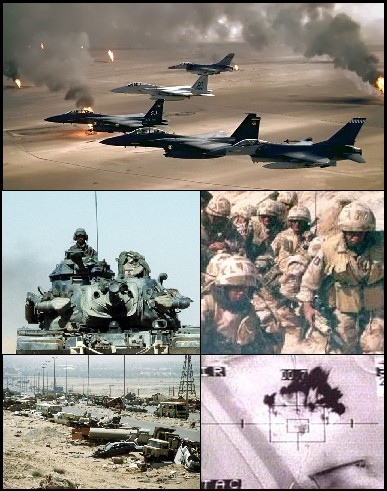
First Persian Gulf War
Vocabulary exercise
Read the definitions of words and phrases. Then complete each sentence with one of the bold words or phrases.
a. Iraq (place): a country in the Middle East
b. Saddam Hussein (person): the former president and dictator of Iraq (1979–2003)
c. Kuwait (place): a small country in the Middle East, south of Iraq
d. Gulf War (event): a war in 1990–1991 after Iraq invaded Kuwait
e. intervention (n.): involvement by a country in another country’s problems, often with military force
1. __________________ ruled Iraq for over 20 years.
2. ____________ by U.N. forces quickly stopped the conflict.
3. The ____________ ended with Iraq’s retreat from Kuwait.
4. ____________ has a long and complex history.
5. ____________ was invaded by Iraq in 1990.
(See answer key at the end of this lesson)
Nautilus Submarine Reaches North Pole (1958): On August 3, 1958, the USS Nautilus, the first nuclear-powered submarine, completed a historic journey under the Arctic ice to reach the North Pole.
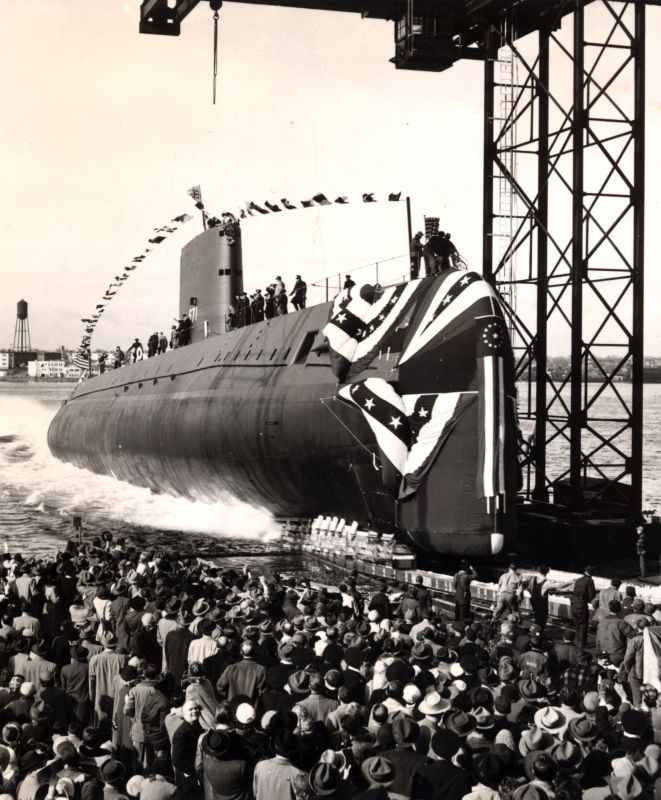
USS Nautilus slips into the Thames River, January 1954
Vocabulary exercise
Read the definitions of words and phrases. Then complete each sentence with one of the bold words or phrases.
a. nuclear-powered (adj.): using energy from nuclear reactions for power
b. submarine (n.): a ship that travels underwater
c. historic journey (adj.+n.): a trip that is very important in history
d. Arctic (adj.): related to the area around the North Pole
e. North Pole (place): the northernmost point on Earth
1. The ____________ disappeared beneath the waves.
2. The explorer reached the ____________ after weeks of travel.
3. A ________________ ship can travel very far without refueling.
4. The ____________ region is covered with ice for most of the year.
5. The astronauts made a ________________ to the Moon.
(See answer key at the end of this lesson)
4. History with Tenses and Conditionals
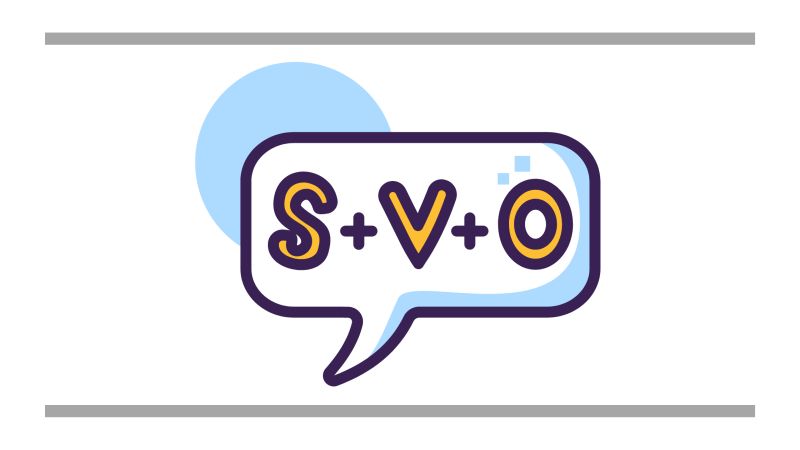
Historical event: Gulf War: Iraq Invades Kuwait (1990): On August 2, 1990, Iraq, led by Saddam Hussein, invaded Kuwait, triggering the Gulf War. This conflict led to international intervention and reshaped Middle Eastern politics.
PRESENT TENSES
Complete the sentences with the correct form of the verbs
Simple Present Tense: Examples: a) He walks to the shop every day. b) He lives near the shop. c) One plus one equals two.
Iraq _________ (invade) Kuwait, and the world _________ (respond).
Present Continuous Tense: Example: He is walking to the shop.
World leaders ___________ (discuss) Iraq’s invasion of Kuwait.
Present Perfect Tense: Examples: a) He has walked to the shop many times. b) He has lived near the shop for ten years.
The United Nations _____________ (condemn) the invasion.
Present Perfect Continuous Tense: Examples: a) He has been walking to the shop for more than an hour. b) He has been going to the shop a lot lately.
They __________________ (negotiate) with Saddam Hussein for weeks.
(See answer key at the end of this lesson)
PAST TENSES
Complete the sentences with the correct form of the verbs
Simple Past Tense: Example: He walked to the shop yesterday afternoon.
Iraq _________ (invade) Kuwait on August 2, 1990.
Past Continuous Tense: Example: He was walking to the shop when I saw him.
While Iraq ______________ (invade) Kuwait, many civilians ______________ (flee).
Past Perfect Tense: Example: He had already walked to the shop when I saw him.
By the time the UN reacted, Iraq had already ______________ (take over) most of Kuwait.
Past Perfect Continuous Tense: Example: He had been walking to the shop for over an hour when I saw him.
Iraq _______________ (plan) the invasion for months before it happened.
(See answer key at the end of this lesson)
FUTURE TENSES
Complete the sentences with the correct form of the verbs
Simple Future Tense: Example: He will walk to the shop this afternoon.
The U.S. and its allies _________ (send) troops to the Gulf region.
Future Continuous Tense: Example: He will be walking to the shop by the time I go to work.
They _________________ (launch) a military operation by the time the Security Council meets.
Future Perfect Tense: Examples: a) By the time I see him, he will already have walked to the shop. b) By this afternoon, he will already have walked to the shop.
By next week, all the troops _______________ (arrive) in Saudi Arabia.
Future Perfect Continuous Tense: Example: He will have been walking to the shop for an hour by the time you see him.
By the end of the year, the coalition ___________________ (prepare) for months.
(See answer key at the end of this lesson)
CONDITIONALS
Complete the sentences with the correct form of the verbs
First conditional: Example: If it rains, I will stay at home. (Real future possibility)
If Iraq _________ (not withdraw), the UN _____________ (take) stronger action.
Second conditional: Example: If I won the lottery, I would quit my job. (Imagined present scenario)
If Iraq _________ (respect) Kuwait’s sovereignty, there _________ (be) no need for war.
Third conditional: Example: If I had studied harder, I would have passed the exam. (Unreal past situation)
If Iraq _________ (not invade) Kuwait, the Gulf War _________ (not start).
(See answer key at the end of this lesson)
5. Quote of the Week
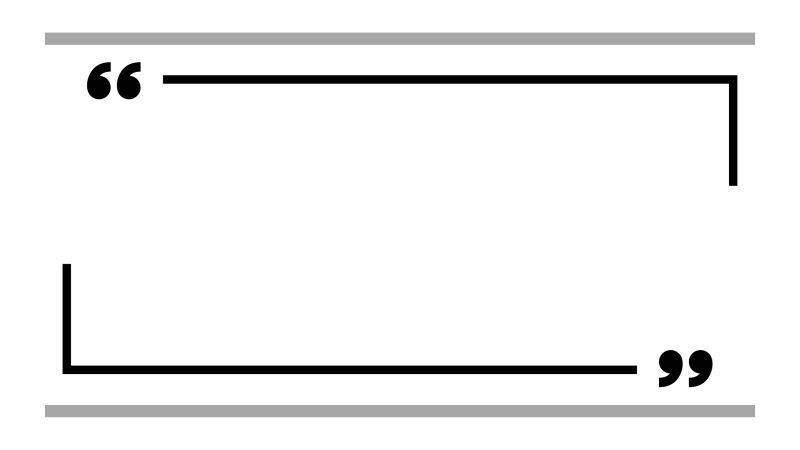
“Travel makes one modest. You see what a tiny place you occupy in the world.” ~ Gustave Flaubert
6. Idiom of the Week
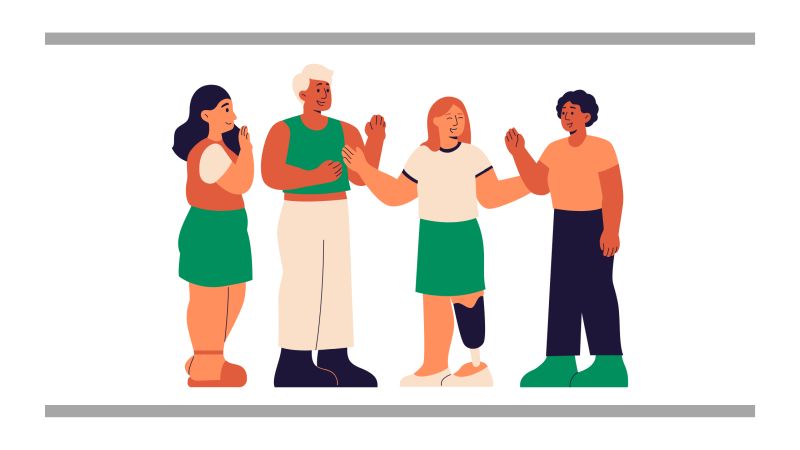
Hold your horses: Asking someone to be patient.
Example: “Hold your horses! Let’s think about this before making a decision.”
Discussion: Think of a situation where you asked someone to hold their horses – where you asked someone to be patient.
7. Answer Keys
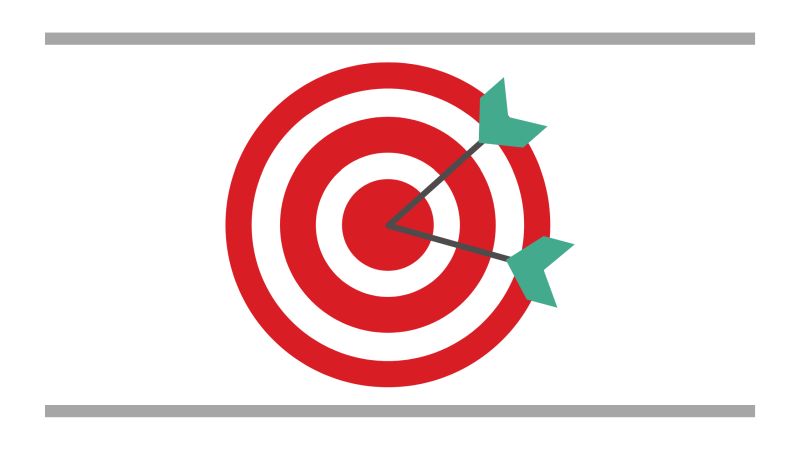
2. Important Event: The Protestant Reformation
Read the definitions of words and phrases. Then complete each sentence with one of the bold words or phrases.
- key figures: prominent individuals who play a crucial role in a particular field or historical event
- (to) challenge the authority (of): to question or confront the power or legitimacy of someone or something
- general public: the ordinary people in a society, not belonging to a particular group or profession
- (to) advocate for the idea (that): to support or argue in favor of a particular idea or possibility
- far-reaching consequences (for): the impact or outcomes of something that extend widely or deeply
- (to) lay the foundation (for): to establish the groundwork or basis for the development of something
- pivotal moment: a crucial and decisive moment that has a significant impact on a particular situation or development
- The signing of the treaty was a pivotal moment in diplomatic relations between the two nations.
- Key figures in the scientific community often contribute groundbreaking discoveries.
- The general public often expresses its opinions through voting in democratic societies.
- Investing in education helps to lay the foundation for a skilled workforce.
- She advocates for the idea that renewable energy could replace traditional sources.
- The protesters aimed to challenge the authority of the oppressive regime.
- The decision to cut funding for education has far-reaching consequences for future generations.
3. This Week in History
Historical event #1: World War I Begins (1914)
Read the definitions of words and phrases. Then complete each sentence with one of the bold words or phrases.
a. Austria-Hungary (place): a large empire in central Europe that existed from 1867 to 1918
b. (to) declare war (phr.): to officially start a war against another country
c. World War I (event): a global war that took place mainly in Europe from 1914 to 1918
d. alliance (n.): an agreement between countries to help each other, especially in war
e. geopolitical (adj.): related to politics and geography, especially between countries
1. Germany declared war on Russia in 1914.
2. The war changed the geopolitical map of Europe.
3. The two countries formed a military alliance.
4. Austria-Hungary collapsed at the end of World War I.
5. Millions of soldiers died in World War I.
Historical event #2: International Tiger Day Established (2010)
Read the definitions of words and phrases. Then complete each sentence with one of the bold words or phrases.
a. (to) raise awareness (phr.): to help people know more about a problem or issue
b. conservation (n.): the protection of nature and natural resources
c. endangered species (n.): animals or plants that are at risk of disappearing forever
d. environmental protection (n.): actions to keep the natural world safe from harm
1. The giant panda is an endangered species.
2. The campaign raised awareness about ocean pollution.
3. Laws were passed to improve environmental protection.
4. Conservation efforts helped save the forest.
Historical event #3: First FIFA World Cup Concludes (1930)
Read the definitions of words and phrases. Then complete each sentence with one of the bold words or phrases.
a. inaugural (adj.): happening for the first time
b. (to) conclude (v.): to end or finish something
c. host nation (n.): the country where an international event is held
d. sports tradition (n.): a long-standing practice or custom related to sports
1. The event concluded with a fireworks show.
2. The opening ceremony is a sports tradition in the Olympics.
3. France was the host nation of the tournament.
4. The inaugural Olympic Games were held in 1896.
Historical event #4: Battle of Passchendaele Begins (1917)
Read the definitions of words and phrases. Then complete each sentence with one of the bold words or phrases.
a. brutal conditions (adj.+n.): very hard and cruel situations
b. heavy casualties (adj.+n.): a large number of people killed or injured
c. horror (n.): a strong feeling of fear or shock
d. trench warfare (n.): a type of fighting in deep ditches used in World War I
1. The army suffered heavy casualties during the battle.
2. Soldiers faced brutal conditions in the trenches.
3. Trench warfare caused many soldiers to die slowly.
4. The horror of war stayed with him for life.
Historical event #5: MTV Launches (1981)
Read the definitions of words and phrases. Then complete each sentence with one of the bold words or phrases.
a. (to) launch (v.): to start or introduce something new
b. (to) transform (v.): to change something completely
c. pop culture (n.): modern entertainment, music, movies, and trends popular with many people
d. innovative (adj.): new and creative; using fresh ideas
e. format (n.): the way something is arranged or organized
1. Social media has transformed how people communicate.
2. The show changed its format to attract more viewers.
3. The company launched a new website last week.
4. The team designed an innovative new product.
5. Pop culture influences how young people dress and talk.
Historical event #6: Gulf War: Iraq Invades Kuwait (1990)
Read the definitions of words and phrases. Then complete each sentence with one of the bold words or phrases.
a. Iraq (place): a country in the Middle East
b. Saddam Hussein (person): the former president and dictator of Iraq (1979–2003)
c. Kuwait (place): a small country in the Middle East, south of Iraq
d. Gulf War (event): a war in 1990–1991 after Iraq invaded Kuwait
e. intervention (n.): involvement by a country in another country’s problems, often with military force
1. Saddam Hussein ruled Iraq for over 20 years.
2. Intervention by U.N. forces quickly stopped the conflict.
3. The Gulf War ended with Iraq’s retreat from Kuwait.
4. Iraq has a long and complex history.
5. Kuwait was invaded by Iraq in 1990.
Historical event #7: Nautilus Submarine Reaches North Pole (1958)
Read the definitions of words and phrases. Then complete each sentence with one of the bold words or phrases.
a. nuclear-powered (adj.): using energy from nuclear reactions for power
b. submarine (n.): a ship that travels underwater
c. historic journey (adj.+n.): a trip that is very important in history
d. Arctic (adj.): related to the area around the North Pole
e. North Pole (place): the northernmost point on Earth
1. The submarine disappeared beneath the waves.
2. The explorer reached the North Pole after weeks of travel.
3. A nuclear-powered ship can travel very far without refueling.
4. The Arctic region is covered with ice for most of the year.
5. The astronauts made a historic journey to the Moon.
4. History with Tenses and Conditionals
PRESENT TENSES
Simple Present Tense: Iraq invades Kuwait, and the world responds.
Present Continuous Tense: World leaders are discussing Iraq’s invasion of Kuwait.
Present Perfect Tense: The United Nations has condemned the invasion. (has because the UN is treated as a singular entity)
Present Perfect Continuous Tense: They have been negotiating with Saddam Hussein for weeks.
PAST TENSES
Simple Past Tense: Iraq invaded Kuwait on August 2, 1990.
Past Continuous Tense: While Iraq was invading Kuwait, many civilians were fleeing.
Past Perfect Tense: By the time the UN reacted, Iraq had already taken over most of Kuwait.
Past Perfect Continuous Tense: Iraq had been planning the invasion for months before it happened.
FUTURE TENSES
Simple Future Tense: The U.S. and its allies will send troops to the Gulf region.
Future Continuous Tense: They will be launching a military operation by the time the Security Council meets.
Future Perfect Tense: By next week, all the troops will have arrived in Saudi Arabia.
Future Perfect Continuous Tense: By the end of the year, the coalition will have been preparing for months.
CONDITIONALS
First conditional: If Iraq does not withdraw, the UN will take stronger action.
Second conditional: If Iraq respected Kuwait’s sovereignty, there would be no need for war.
Third conditional: If Iraq had not invaded Kuwait, the Gulf War would not have started.
That’s it for English class this week! See you next Friday!
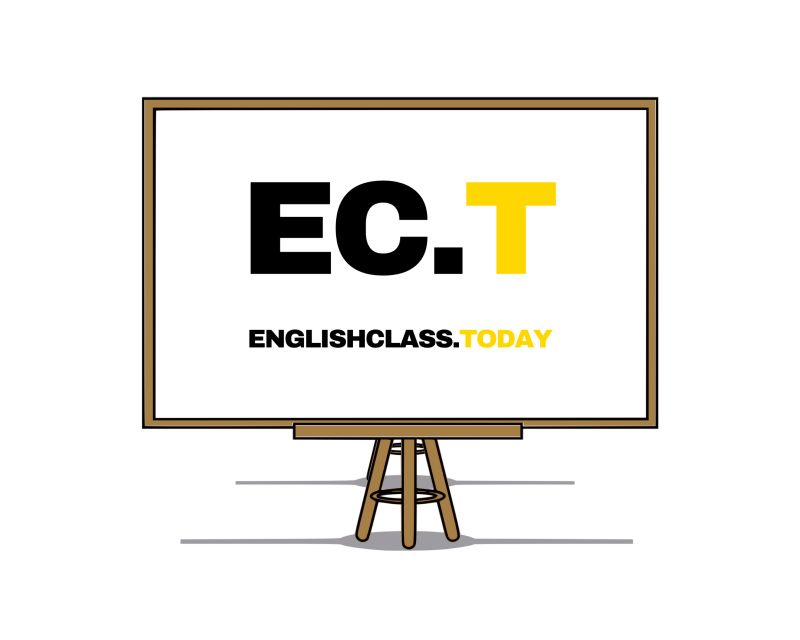
Did you enjoy this lesson? Support us to keep it free for everyone – click on the “Donate” button …
… or go to this page:
xxx
 Donate
Donate